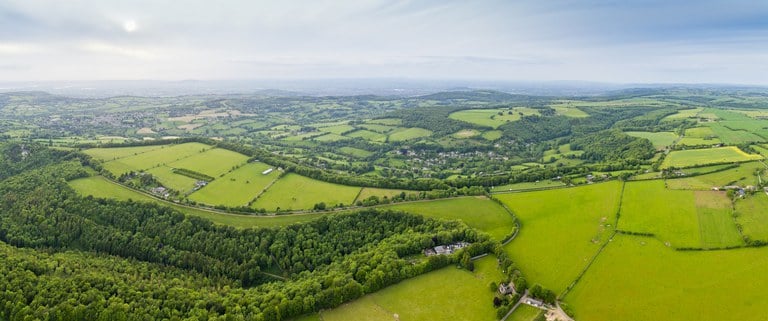Embrapa highlights Brazilian sustainable agriculture in the UK
Embrapa presented some of the main aspects about Brazilian agribusiness sustainability to British authorities, parliamentarians and businesspersons in the United Kingdom last week. The event held at the Brazilian Embassy in London has featured a lecture by the president of Embrapa, Celso Moretti, who highlighted the transformation of Brazilian agriculture over the last 50 years. […]

Embrapa presented some of the main aspects about Brazilian agribusiness sustainability to British authorities, parliamentarians and businesspersons in the United Kingdom last week.
The event held at the Brazilian Embassy in London has featured a lecture by the president of Embrapa, Celso Moretti, who highlighted the transformation of Brazilian agriculture over the last 50 years.
Moretti also emphasized Embrapa’s set of technologies for decarbonizing agriculture. “It is possible to feed the world and protect the environment with public policies and low-carbon agriculture”, he said.
The seminar “Sustainable Agriculture: what is already working?” also had Fred Arruda, Brazilian Ambassador to the United Kingdom, as speaker.
“Our country has 66.3% of its territory preserved, we feed more than 800 million people around the world and export to more than 200 countries,” said Moretti, citing data from studies by Embrapa, the Ministry of the Environment, from IBGE and Terraclass.
According to him, preserved areas cover 66.3% of Brazilian territory, while crops and pastures count 7.8% and 21.2% respectively. Among the public policies, Moretti highlighted Brazilian Forest Code, Renovabio, ABC Plan for Low Carbon Agriculture and Pronasolos.
As part of the ABC Plan, Brazilian government currently finances practices such as Biological Nitrogen Fixation, recovery of degraded pastures, planting forests, Crop-Livestock-Forest Integration and sustainable production management.
As consequence, there are already 38.5 million hectares of cultivated areas with the use of FBN annually, 17 million hectares in ILPF (with a goal of reaching 30 million hectares by 2030) and protocols for low carbon production of beef, soy, coffee and milk.
“Our participation in the seminar was of great importance and generated a strong impact among participants, especially regarding conservation data. We also presented sustainable public policies and technologies for Brazilian agriculture decarbonization”, added.
During the trip, Moretti also met with the director of the Global Panel on Agriculture and Food Systems for Nutrition, Ms. Sandy Thomas, and with directors of the Indian multinational UPL.
On the agenda, new cooperation agreements in the areas of climate change, low-carbon agriculture and the development of new products within the scope of Embrapa’s set of projects in bio-inputs.
Currently, Embrapa already has a cooperation agreement with the UPL, focused on exporting pulses, canola and chickpeas to the Asian country.


